With 25 years of collective experience, five postgraduate students from SMU’s Master of Science in Innovation (MI) programme took the MI Capstone to another level at the 2016 Asia Venture Challenge (AVC). In this candid interview, they share their entrepreneurial journey and how they discovered a new business model to revive the immensely competitive airline industry.
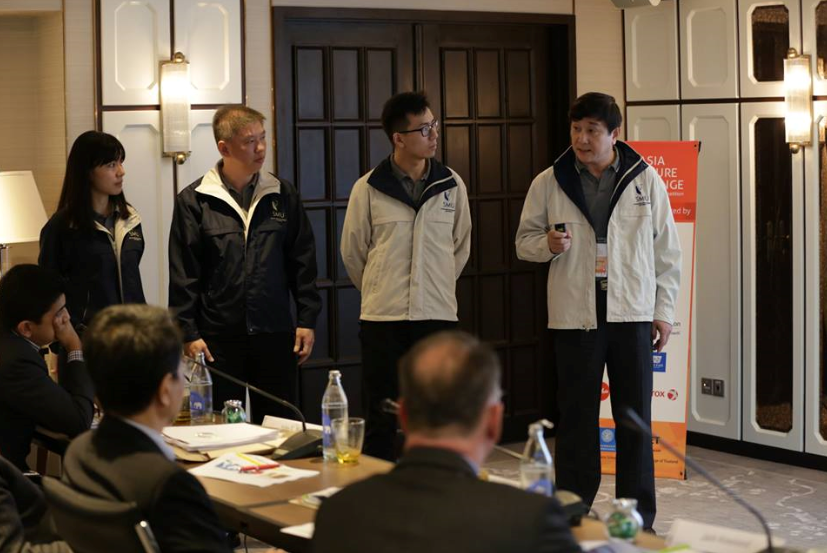
Team FlyCargo impressing the judges at the 2016 Asia Venture Challenge.
Q: How was FlyCargo conceptualized?
Ang Peng Chua (Team Leader): The competition in the marketplace is highly intense for most businesses around the world. This is especially so for the airline industry as more new airlines enter the global market to compete for the passenger and cargo business. However, most of the airlines allocate a much larger portion of their resources to focus on growing their passenger business, and—as a result—have neglected the cargo business. This is the main reason why many of the airlines around the world are not able to achieve break-even point for their cargo business.
We see this as an opportunity for FlyCargo to serve those airlines by building up their cargo business to achieve profitability in the long-term. This will allow those airlines to focus their resources and attention to grow the passenger business while FlyCargo can help them to take care of their cargo business to achieve long-term success.
Wysen Kwek: The concept of FlyCargo was derived from Peng Chua’s experience in the logistics industry. He provided the spark that brought the team together.
Alfred Koh: It started during MI Term 1 in September 2015 when each student was required to submit a crude entrepreneurial business plan under the MGMT662 module (Innovation – Focused Strategic Leadership). It was through a sharing session that we decided to come together to form the Capstone team, and we decided to adopt Peng Chua’s business plan for the Capstone project. The plan was to leverage and capitalise on the rich MI modules and assignments designed by the Master Programme. The name Team FlyCargo was only decided in November 2015 after several rounds of discussion and voting.
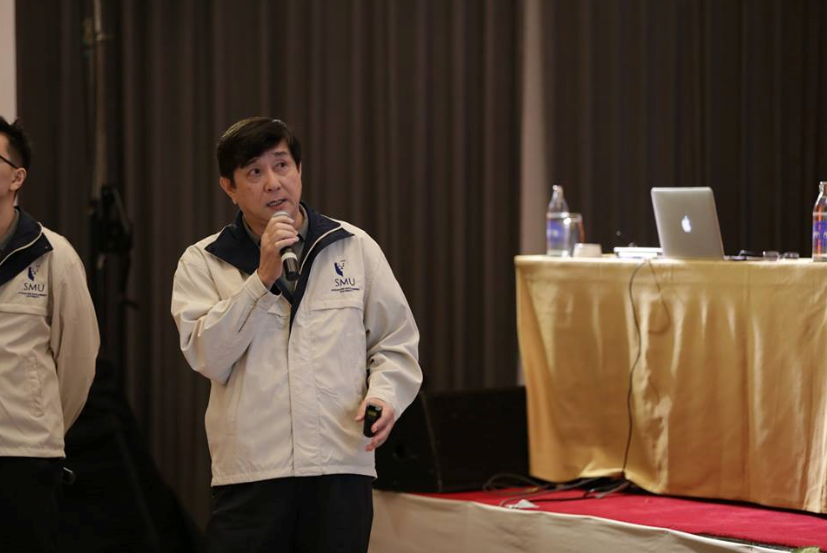
FlyCargo’s team leader Ang Peng Chua in action.
Q: What were the main challenges in bringing this project together?
Peng Chua (Team Leader): I have been working in the logistics industry for many years but the air cargo business was totally new to most of our group members. Thankfully, we managed to gel quickly, with each member of the group contributing different parts—such as performing financial tabulations, researching for more information, updating presentation slides, and conducting interviews with airlines—in building up the FlyCargo project.
Wysen: There were two main challenges faced while working on the project: (1) Time constraints: As four out of the five members of the team were working full-time, the preparation work could only be done at night or during the weekends. In the lead up to the competition, the team ‘burned’ a number of Sunday afternoons for meetings. In addition, due to the lack of face-time, a lot of coordination was done via electronic means (e.g. WhatsApp, E-mails). The team was built on professionalism and the trust that every individual would play his or her role to deliver the requirements on time. This also meant that most of us worked on our respective components late into the night. (2) Experience in the logistics industry: We overcame this challenge through extensive research and sharing by Peng Chua. The requirements of the different modules within the Master Programme also enabled the team to look into various domains in order to obtain more knowledge about the industry.
Alfred: The five of us brought to the table between 3 and 25 years of working experience in our respective domains. This brought fresh ideas and perspectives to our Capstone project. Besides Peng Chua who had deep knowledge of the subject matter, the rest of us had a steep learning curve; to learn, understand and comprehend the opportunities and challenges in the FlyCargo industry before we could contribute effectively and distill the unique value proposition and business model. We were professional and candid in our discussions, and were fortunate that no conflicts were encountered throughout. We learnt and built on each other’s ideas and inputs, ran our hypotheses through the lecturers and industry practitioners, and tested out concepts. One of the challenges we faced was perhaps the short lead-time given to us to participate in two competitions, a local competition (the inaugural SMU/DBS/Beacon Rock Pitching Competition) in February 2016 and an overseas competition in March 2016, of which we were only informed about in late November 2015.
Arthur Lim: Leading up to AVC 2016, we were not thoroughly certain about how best to present our business idea cogently and convincingly, and how to prepare for the competition.
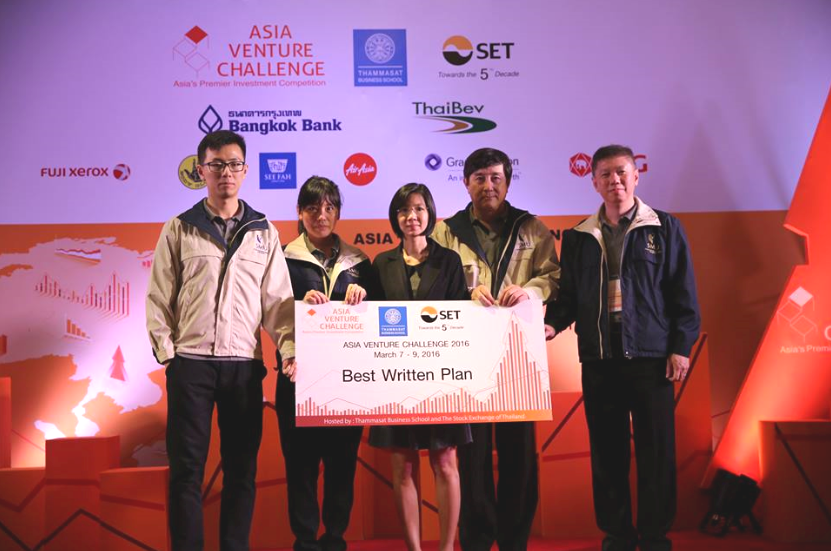
Apart from coming in as 1st runners-up, Team FlyCargo also snagged the division’s Best Written Plan award.
Q: How did the group overcome these issues and move forward?
Peng Chua (Team Leader): The group held regular meetings along the way to discuss some of the differences that we encountered with the project. We were able to resolve those differences through the many meetings and brain storming sessions that we had along the way, which ultimately allowed us to move forward with the project and achieve its final goal.
Alfred: We were initially hesitant in participating in the two competitions as we felt that we might not be ready given that we were still in an early stage of project conceptualisation. Once we decided that we would utilise those platforms to validate our business concepts and plans, it propelled us to work harder. This resulted in numerous meetings after school on Saturday or on Sunday afternoons. We were grateful that SMU assigned a mentor to help us in our preparation, and greatly benefitted from the input of MI Alumni who came back to share their AVC experience.
Arthur: This was where we found our MI course very relevant and the SMU community very helpful. Our MI syllabus had progressively equipped us with knowledge about developing a business plan, articulating our value proposition, examining all aspects of the business model canvas and valuing our start up. The instructors and staff from SMU gave us advice and assistance on various aspects of our business plan and the administrative preparation for the AVC, often after office hours to work around our schedules. Even our seniors from MI who attended AVC the year before chipped in with their experience.
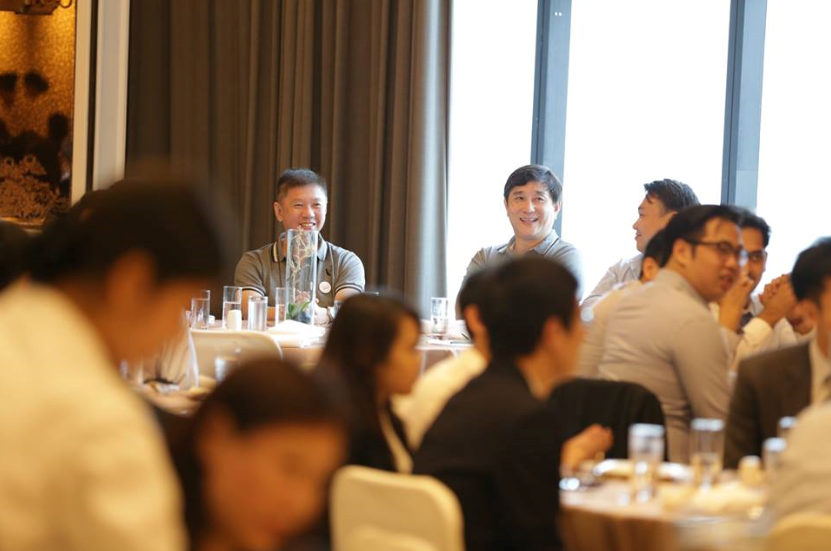
The team enjoying a rare relaxing moment during the otherwise intense competition.
Q: Can you describe your experience during the competition?
Peng Chua (Team Leader): AVC 2016, which was held in Bangkok, was an eye-opener for our group. During the first and second rounds of the competition, the judges asked us some of the most difficult questions fathomable, questions that we were not prepared at all to answer. Having learnt from that experience, we discussed those questions among our group members ahead of the final round, and ensured that our presentation slides were fine-tuned accordingly. It was through those tough questions from the first and second rounds of competition that prepared us for the final competition, in which we did well.
Alfred: Both competitions provided us with invaluable experience and opportunities for learning that we would never have gotten in a safe and sanitised classroom environment. The AVC was particularly brutal but fulfilling. The interactions with over one hundred potential investors, 30 judges from different countries and contestants from 11 other universities gave us valuable lessons on what investors and judges looked for in business propositions and models, as well as the struggles faced by would-be entrepreneurs (i.e. the contestants).
As our team went through each of the three rounds of competition including the final, two things happened: firstly, we were excited that the insights we garnered from the previous round had sharpened and strengthened our business value proposition and plans, and secondly, our confidence grew and we were able to hone our presentations in on what the investors and judges were interested in. The takeaways were tremendous both at the individual level and group level. Emerging as the first runner-up in the competition, beating teams from China, India and Japan, was an endorsement of our FlyCargo business model. It was a great motivator and confidence booster for the team. At the same time, it was also an endorsement of the MI syllabi and modules put in place to prepare would-be entrepreneurs.
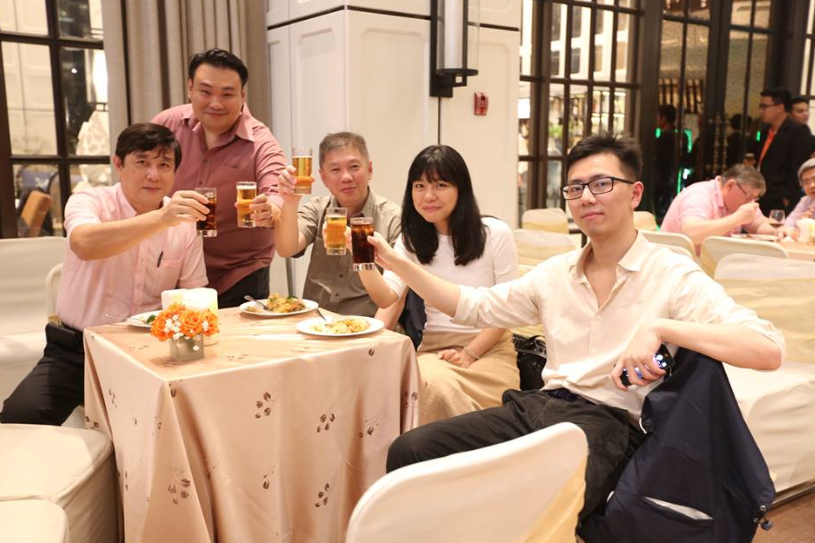
Team FlyCargo celebrating a job well done!
Q: What was your biggest takeaway from this experience?
Peng Chua (Team Leader): We spoke to a few of the judges and investors after each of the competitions, and they showed keen interest in our business model. This further validated our belief that our business model is workable, and that the business is scalable in the real business world. This gave the confidence to start the company without any further hesitation.
Wysen: As Peng Chua mentioned, the competition allowed us to validate our business model with more individuals. This assured us that we were doing something right. The confidence spurred us to work harder to make the business a reality.
Alfred: One of the reasons why I took up the MI programme was to network with like-minded individuals, with the potential to start up a business. Team FlyCargo, coupled with the progressive MI syllabi and modules, has given me this opportunity. Though an entrepreneurial journey is full of ups and downs, I’ve learnt that as long as there is a clear value proposition and business model, there will be ready investors who will be interested to come onboard with you.
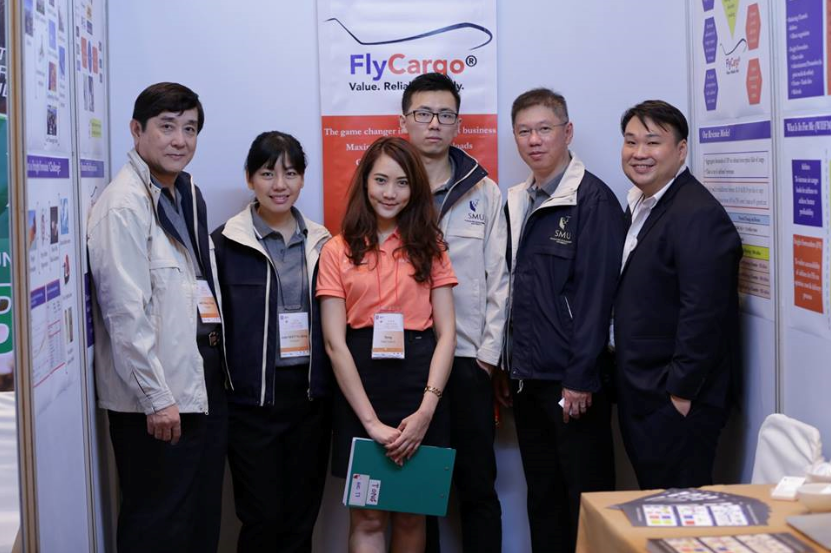
FlyCargo: Destined for heights of success!














